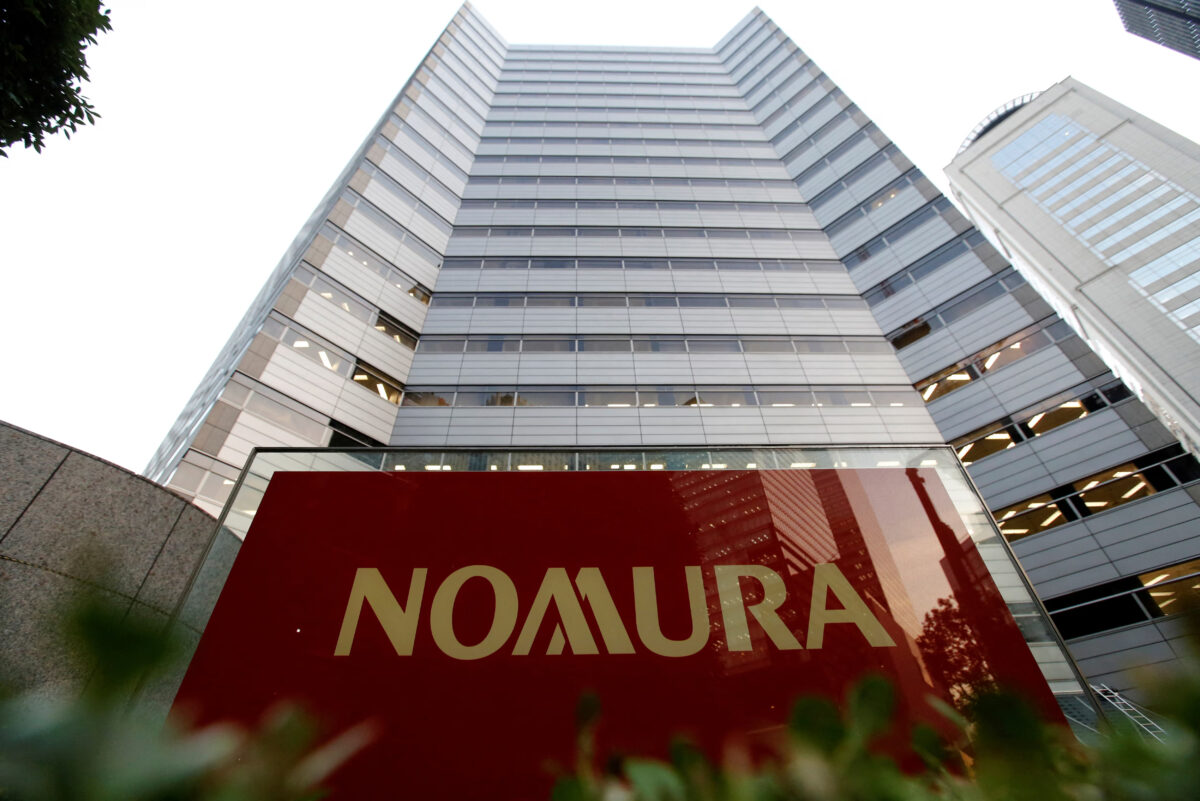Nifty Target For March 2026: Nomura India has raised its Nifty target for March 2026 to 26,140, citing supportive macroeconomic factors that continue to bolster equity valuations, even as risks to corporate earnings linger.
The Japanese brokerage noted that positive domestic macros, such as falling bond yields and robust domestic inflows, are underpinning the market’s performance. Nomura’s new target represents about a 6% upside from current levels.
Why the Upgrade?
“Given the favorable macro backdrop and supportive valuations, we have raised the target valuation multiple to 21x (up from 19.5x),” said Saion Mukherjee and Amlan Jyoti Das, Nomura research analysts, in a note. “Applying this to FY27 forward earnings, we arrive at a new Nifty target of 26,140 (up from 24,970).”
They believe the combination of lower bond yields, steady domestic investor flows, and resilient performance of Indian equities has strengthened market sentiment, despite earnings downgrades.
Earnings Cuts Weigh on Outlook
Nomura flagged a deceleration in corporate earnings growth. Reviewing Q4FY25 results from 223 companies (including the BSE 200), it noted that while aggregate profit after tax rose 10% YoY—6% ahead of consensus—earnings expectations for FY26 and FY27 have been trimmed.
Consensus estimates for FY26 and FY27 have been cut by 2.3% and 1.4%, respectively, since March 2025. Compared to September 2024, the downgrades are steeper at 7.6% and 6.3%. Nomura expects further 4-8% earnings cuts for FY27.
“Corporate earnings to GDP ratio is already near its peak,” Nomura cautioned. “Significant outperformance over nominal GDP growth seems unlikely in the near term.”
Key risks include a sluggish investment cycle, fiscal consolidation, weak household savings, and tepid export demand—although some of these pressures may be mitigated by softer oil prices, easing inflation, and falling interest rates.
Valuations Hold Despite Global Risks
Indian equities are trading at about 20.5x one-year forward earnings, near the top of their three-year range. Yet, Nomura said the earnings yield-to-bond yield spread remains in a comfortable zone, supporting the positive market outlook.
“Even with global trade uncertainties and policy risks, the equity risk premium remains low,” Nomura said.
Sector Preferences Tilt to Domestic Themes
Nomura now favors domestic-facing sectors and consumption themes over export-led and investment-heavy sectors. “We prefer domestic-focused sectors due to global uncertainties. Consumption themes, driven by low inflation, potential rate cuts, and fiscal support like income tax reductions, appear promising,” the report said.
The brokerage is overweight on financials, consumer staples, autos, discretionary spending, oil and gas, power, telecom, internet, and real estate. It also favours select domestic healthcare plays and stocks linked to the supply-chain relocation trend, particularly in autos, chemicals, and electronics. Sector preferences tilt to domestic plays, consumption.
Nomura has shifted its sectoral bias in favour of domestic-oriented stocks and consumption themes over export-led and investment-driven sectors. “We prefer domestic-focused sectors to exporters given global uncertainties. Within that, consumption themes look more promising due to tailwinds from low inflation, rate cuts, and fiscal support such as income tax reductions,” the report said.
The brokerage is overweight on financials, consumer staples, autos, discretionary spending, oil and gas, power, telecom, internet, and real estate. It also favours select domestic healthcare plays and stocks linked to the supply-chain relocation trend, particularly in autos, chemicals, and electronics.
Conversely, Nomura remains cautious on IT services, industrials, cement, and metals—sectors tied to capital expenditure cycles and global demand. It also flagged US tariff risks as a near-term headwind for Indian pharma exports, though it sees any correction as a buying opportunity. “In our view, the investment cycle may be delayed due to global uncertainty,” it said. “But selective opportunities still exist, particularly in power sector-related industrials.”
Top Stock Ideas: What’s In, What’s Out?
Among largecaps, Nomura’s preferred buys include ICICI Bank, SBI, Axis Bank, Bajaj Finance, Godrej Consumer, Mahindra & Mahindra, CG Power, Reliance Industries, and Tata Power.
For small and midcaps, Marico, Dixon, Uno Minda, Gland Pharma, Lupin, MedPlus, Oberoi Realty, and Dr Lal Pathlabs feature prominently.
- Removed: Federal Bank (due to earnings pressure and margin concerns), Bharat Electronics (after sharp rally)
- Added: Hindustan Aeronautics (order visibility), Jindal Steel & Power (new capacity upside), Oberoi Realty (favorable project pipeline)
- IT least preferred: L&T Technology Services (weaker visibility in engineering R&D amid tariff risks)
- Metals switch: Dropped JSW Steel (litigation concerns)
Nomura believes that while the investment cycle might be delayed due to global volatility, selective opportunities—especially in power sector-linked industrials—still exist.
Top-notch SEBI registered research analyst
Best SEBI registered Intraday tips provider
Telegram | Facebook | Instagram
Call: +91 9624421555 / +91 9624461555



